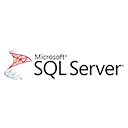SQL Server provides robust support for handling JSON data, allowing you to work with JSON documents in your database. In this beginner's guide, we'll explore the basics of SQL Server JSON support, including JSON data types, functions, and operations. We'll provide sample SQL Server code examples to help you get started.
JSON Data Types in SQL Server
SQL Server supports two primary JSON data types:
- JSON: This data type stores JSON data in its original format, allowing you to insert, retrieve, and manipulate JSON documents directly.
- NVARCHAR(MAX): You can also store JSON data as a string in an NVARCHAR(MAX) column.
Basic JSON Operations
SQL Server provides a range of functions and operations for working with JSON data:
- JSON_VALUE: Extracts a scalar value from a JSON string.
- JSON_QUERY: Extracts an object or an array from a JSON string.
- JSON_MODIFY: Modifies a value in a JSON string and returns the modified JSON.
Sample SQL Code for JSON Operations
Here's an example of using JSON functions in SQL Server:
-- Sample JSON data
DECLARE @json NVARCHAR(MAX) = N'{
"name": "John Doe",
"age": 30,
"city": "New York"
}'
-- Extract a value
SELECT JSON_VALUE(@json, '$.name') AS Name
-- Extract an object
SELECT JSON_QUERY(@json, '$') AS Person
-- Modify a value
SET @json = JSON_MODIFY(@json, '$.age', 31)
What's Next?
You've learned the basics of SQL Server JSON support for beginners. To become proficient, you can explore more advanced topics, such as handling complex JSON structures, querying JSON arrays, and integrating JSON data with your applications and databases.
SQL Server's JSON support opens up new possibilities for working with semi-structured data, making it a valuable feature for developers and database administrators.

